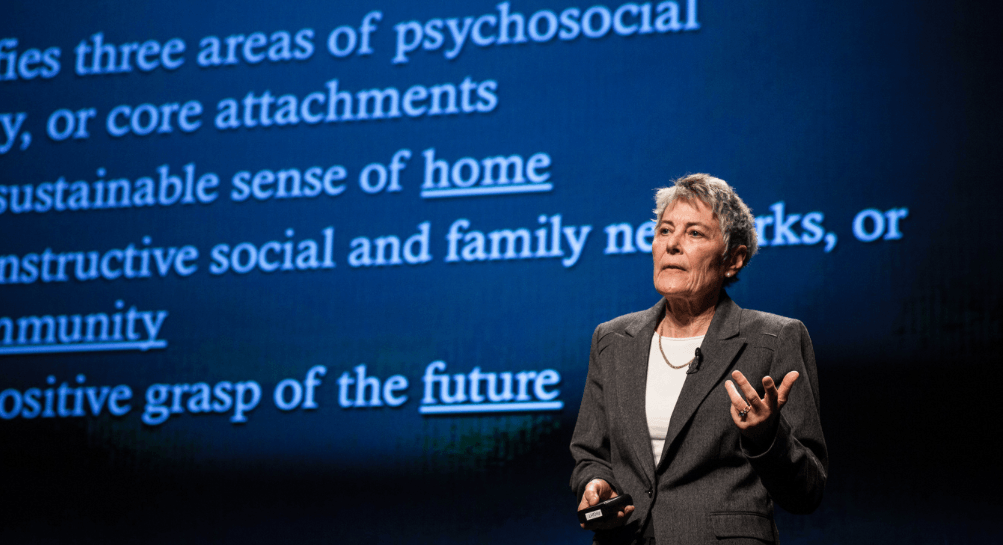
FXB director Dr. Jennifer Leaning has long been concerned about climate change from a humanitarian and human rights perspective, particularly as it affects forced migration. She will deliver the keynote for an upcoming symposium on Climate Change, Migration, and Health on Thursday, September 28 (free, but registration necessary). Sponsored by the Harvard Global Health Institute, the symposium explores the grave consequences for global health that climate-induced migration poses in the 21st century. FXB research associate Elizabeth Donger will present on a panel about caring for climate migrants, sharing lessons from FXB’s recent project on the health and well-being of adolescent refugees living in urban environments in Ecuador and Zambia; a host of other notables will speak.
As Dr. Leaning discusses in the Harvard University Center for the Environment (HUCE) video on this linked page, she first considered climate change in terms of the increasing numbers of wind and water storms and the rising of sea levels. Her experience from 2004 through 2007 working with refugees from the Darfur conflict deepened her understanding of the role of climate change in inciting or enabling conflict. The underlying problem came from a collapse of livelihoods because of lack of water from drought. The settled farmers could no longer depend on drawing water for crop irrigation; they needed to diversify into raising some livestock. Meanwhile, the nomadic tribes who depended on land for grazing their herds needed to go farther and farther afield. The nomads, one set of tribes and ethnicities supported by the government, were forced into proximity with the farmers from another set of tribes and ethnicities, and conflict burst out. Desertification was the spark that lit that explosion of politics, ethnicities, and old histories.
Dr. Leaning sees the four-year drought in Syria as an important part of the build-up to conflict there, as she  explains in her remarks at a precursor to next week’s event. As the climate changes, Dr. Leaning expects that more and more such examples. Along with HUCE, HGHI organized a conference in April 2017 which contained the seeds of next week’s seminar. At “Human Health in a Changing Climate,” Dr. Leaning spoke on the panel, Climate Change, Migration, and Health. Her contribution, “Climate Change, Distress Migration, and Armed Conflict: The Case of Syria,” discussed climate change as a factor in the beginning of the Syrian conflict and its effects on displaced people now.
explains in her remarks at a precursor to next week’s event. As the climate changes, Dr. Leaning expects that more and more such examples. Along with HUCE, HGHI organized a conference in April 2017 which contained the seeds of next week’s seminar. At “Human Health in a Changing Climate,” Dr. Leaning spoke on the panel, Climate Change, Migration, and Health. Her contribution, “Climate Change, Distress Migration, and Armed Conflict: The Case of Syria,” discussed climate change as a factor in the beginning of the Syrian conflict and its effects on displaced people now.
Go to the video of the panel. Or go here for individual videos of all the sessions of the day, which former US Vice-President Al Gore recommended in a Tweet.
Go to the HUCE webpage for Dr. Leaning, which features papers and other videos, as well as the video mentioned above.
Some of this post appeared in an April FXB post on a similar topic.

